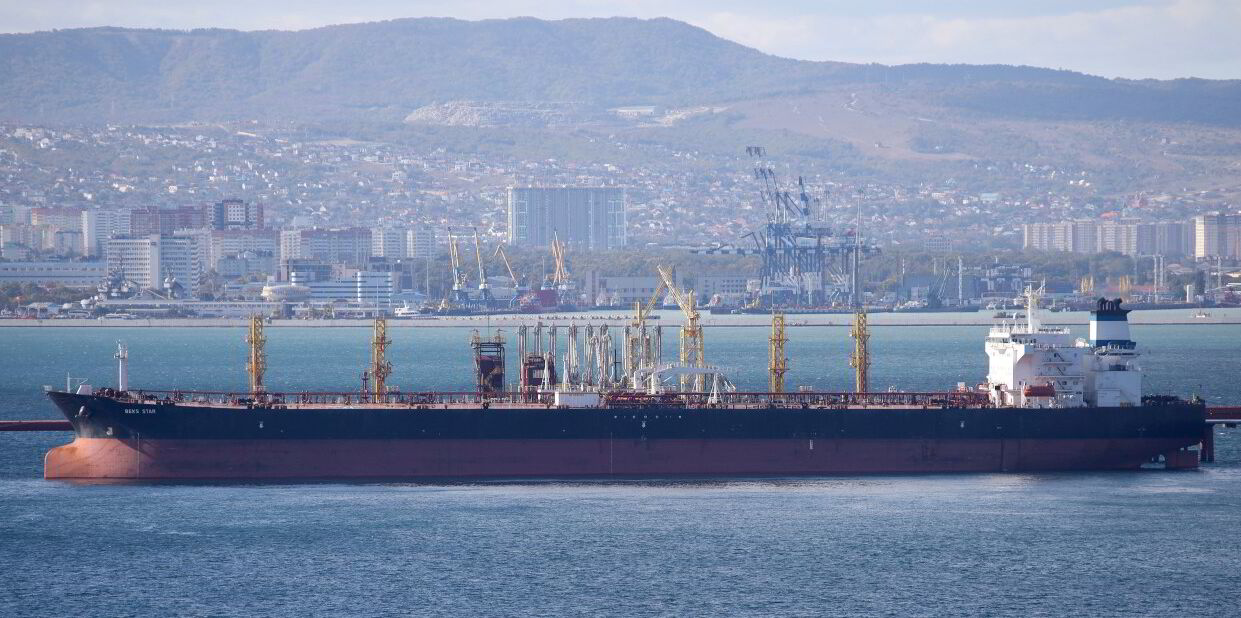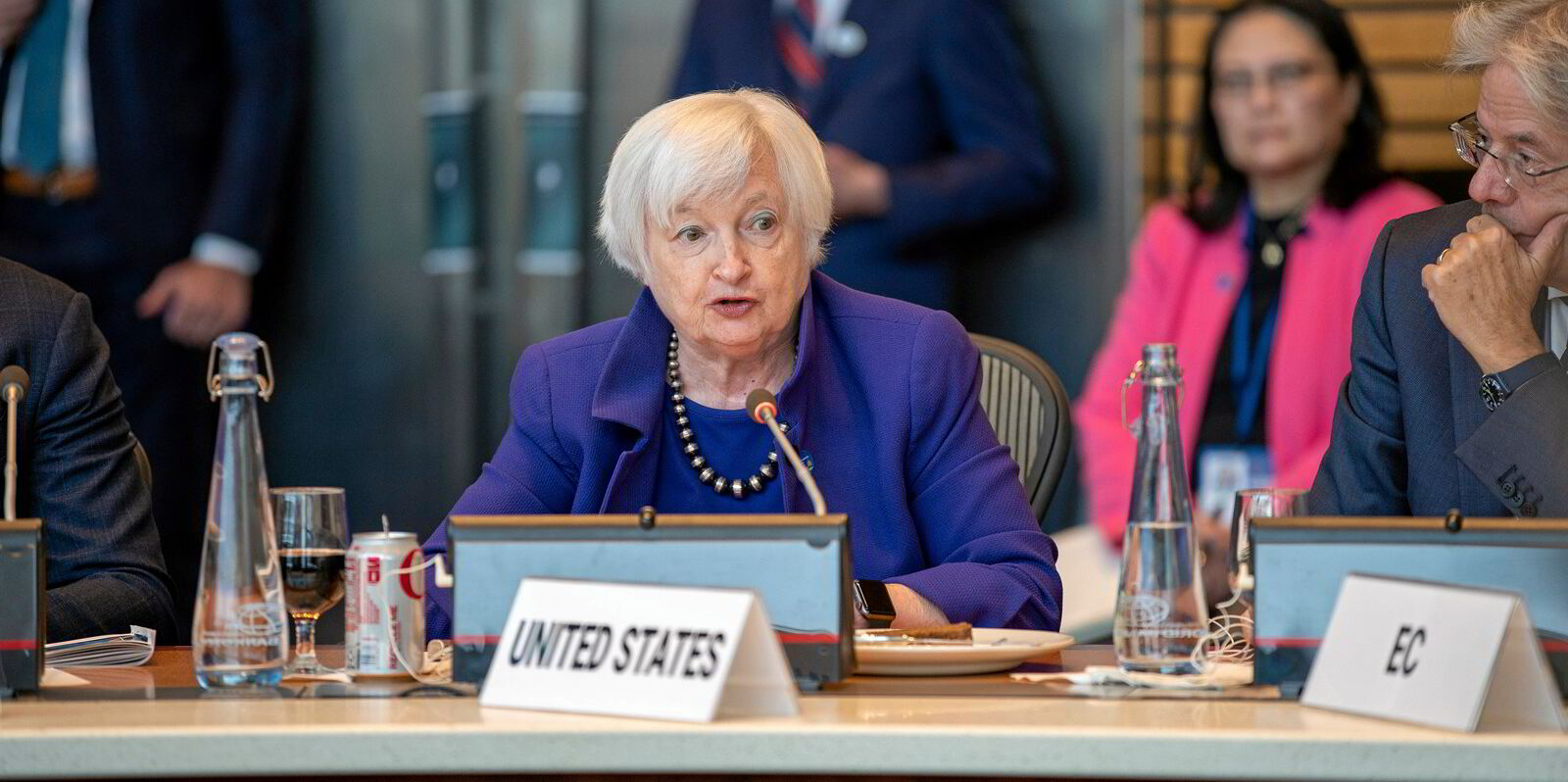The international Price Cap Coalition has issued new guidance to shipping, including advice to tanker sellers and brokers to be vigilant in conducting deals, over what it describes as rising risks from the shadow fleet.
The latest recommendations by the group — made up of G7 nations, the European Union, Australia and New Zealand — aims to tackle sanctions evasion and address environmental risks posed by the fleet of tankers that is being used to move Russian crude and petroleum products.
Among new recommendations, shipowners and brokers are urged to watch for potentially “evasive or illicit” purchase structures or end-uses for vessels they sell, especially older tankers.
“While new participants may enter the industry, the coalition strongly encourages stakeholders to conduct enhanced due diligence on these transactions, including ultimate beneficial ownership due diligence, and to understand if buyers or associated ship management companies have a previous association with vessels engaged in potentially illicit or unsafe behaviour,” it said.
The due diligence should include finding out contact details, the source of funds and identification of the buyer’s beneficial owner.
Then, sellers and brokers need to verify that information against third-party databases, media and other market intelligence.
The recommendation is not new for all the jurisdictions in the group; the EU launched measures in February to monitor sale-and-purchase deals.
The latest guidance aims to help shipping stakeholders remain vigilant to sanctions evasion since the price cap was placed on Russian petroleum in December 2022 in response to the invasion of Ukraine, as well as react to the risks associated with the shadow fleet of older vessels that operate outside mainstream shipping structures.
“A ‘shadow’ trade has become more pronounced, often involving actors and cargo affiliated with countries and/or persons subject to sanctions, or associated with other illicit activity,” the coalition said.
“This shadow trade is characterised by irregular and often high-risk shipping practices that generate significant concerns for both the public and private sectors.”
The increased risks include safety and environmental concerns. The coalition also cited the worry that a shadow vessel involved in an environmental incident might have insurance that cannot handle a major claim.
According to the advisory published by the US Treasury Department on Monday, the coalition added four new recommendations to its guidance, in addition to updating previous advice.
Other new advice includes ensuring that vessels meet maritime and environmental standards.
Flag states should ensure vessels are not conducting illegal operations or evading compliance, the coalition said. And coastal states should ensure compliance with safety and pollution prevention rules by monitoring ship-to-ship transfers.
It also wants stakeholders to avoid interactions with sanctioned parties by doing more than checking counterparties against sanctions lists. Officials urged “proactive investigations” to check exposure — even by looking into whether non-sanctioned entities have done business with sanctioned ones.
“Stakeholders should, where possible, deny attempts by sanctioned vessels or parties to enter port, conduct STS transfers, and sell or buy tankers, and report these attempts to relevant authorities,” the coalition said.
It also urged industry players to train their staff and partners to watch for shadow fleet activities and deceptive practices.





